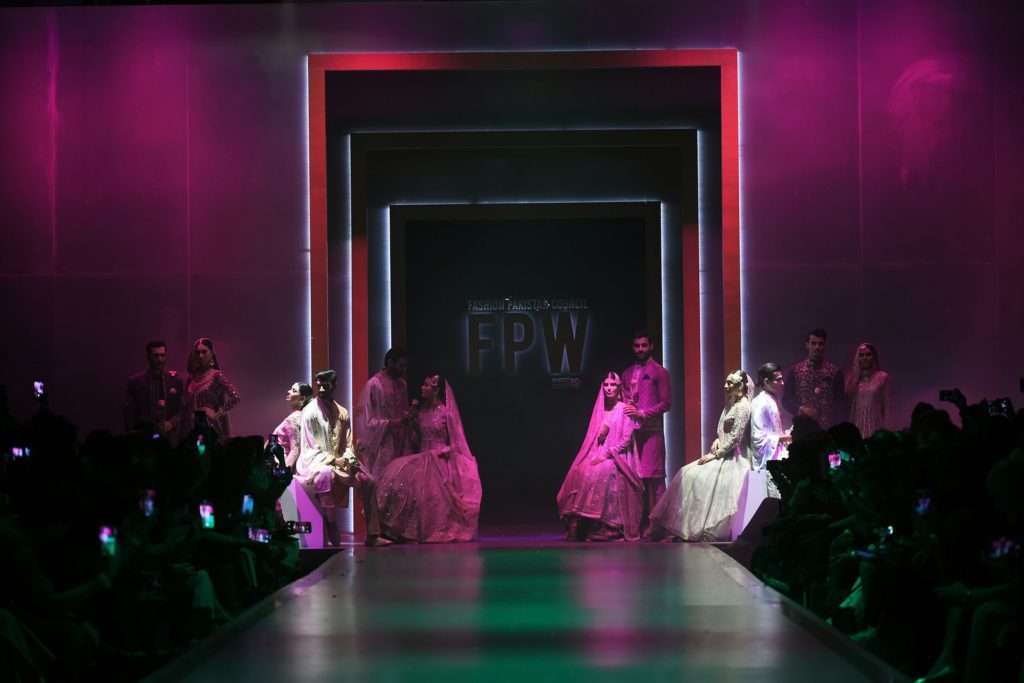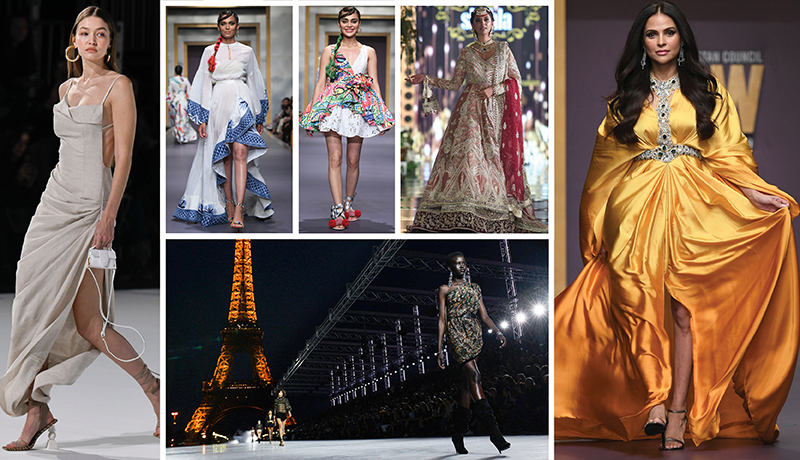As we make peace with the new reality amid the coronavirus pandemic, the fashion industry around the world is also trying to adjust to the new normal but a question mark remains on the future of fashion shows. Will we ever witness the adrenaline of the runway again?
The world started to change by the end of 2019 with the emergence of the coronavirus that has gradually at first and now has rapidly spread out globally. The unseen virus classified as a pandemic eventually spread all over the world within a few months of the first case being reported in China.
The world soon came to a standstill when cases sky rocketed to more than 500,000 as the WHO began to initiate protocols to contain the escalading situation. With the growing dynamics and the vaccine a dwindling hope, global economies started to plummet as tourism and public gatherings were notarised as hazardous with high risks of virus contamination, lockdowns emerged to set a sharp decline in businesses worldwide.
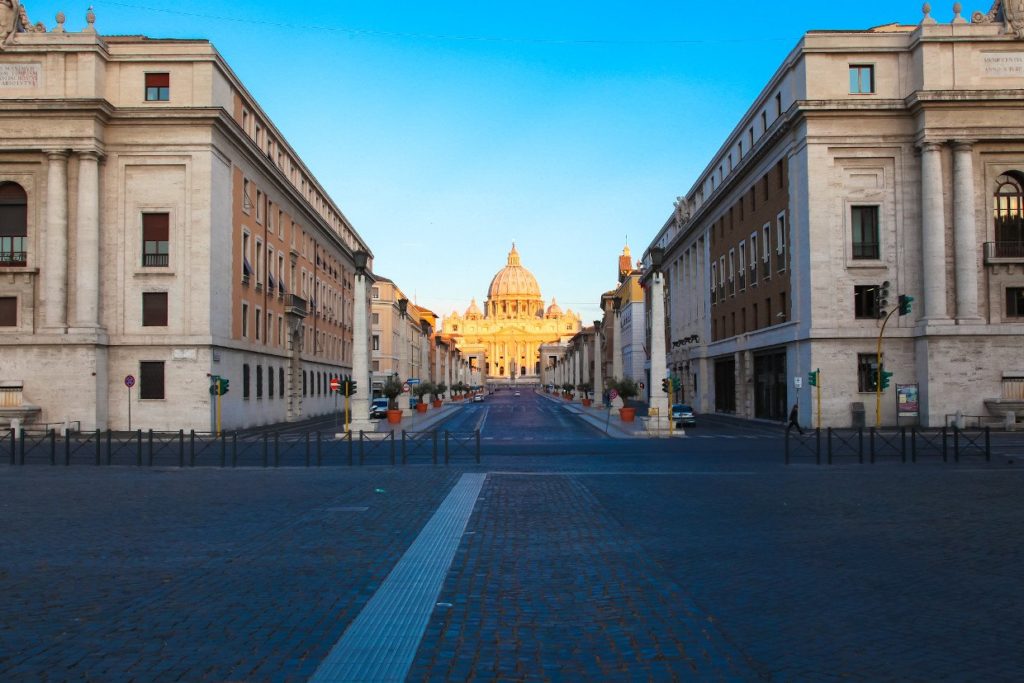
Fashion Takes The Fall
As the world slowly crept into an over cast of fear and worry, with cases rising higher than ever, greater restrictions were imposed. With zero flights and limited mobility, industries started to degenerate and the world of fashion being no exception. The fashion industry crumbled in the midst of the lockdowns with regular operations ceasing to exist.
Fashion is much more than the outfits and labels; it is a global supply chain based over more than 200 countries interconnected from fabric production houses located in countries like Myanmar to retail stores across Europe and North America.
The disruption in this supply chain has caused hindrance throughout the globe.
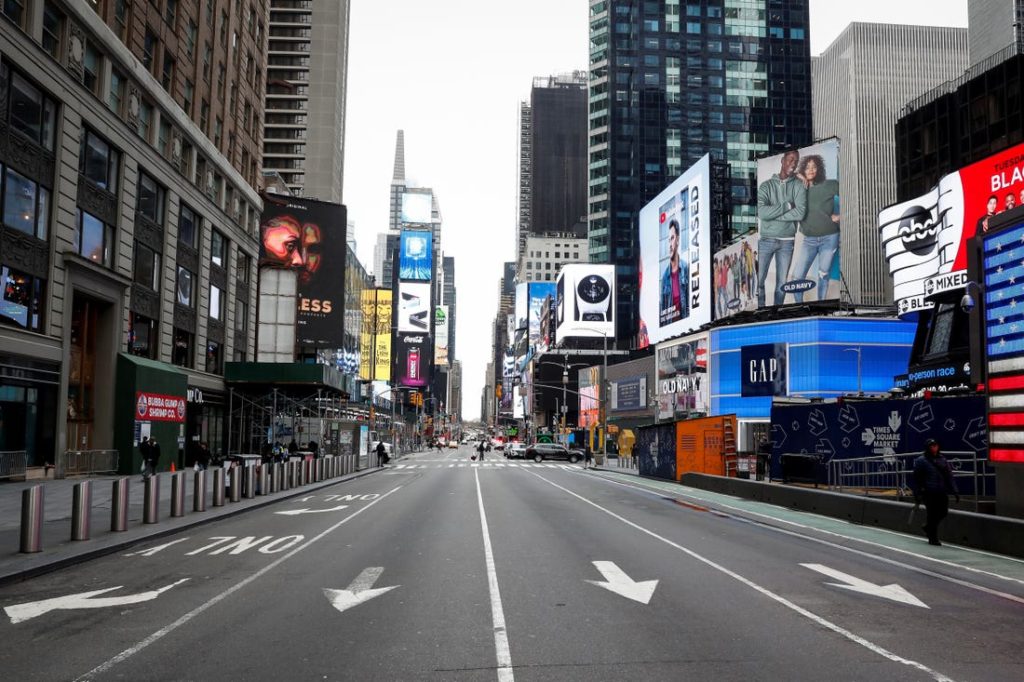
China being the first country that went into lockdown caused a domino effect which subsequently created loopholes in fashion merchandise reaching consumers. With less and less fabrics being developed production houses shut in thousands, the fashion world quickly went into shutdown.
Italy — which is also the global hub of fashion faced a radical increase in cases which forced a nationwide lockdown while other major fashion destinations such as UK and USA had to also implement similar measures to control the virus spread.
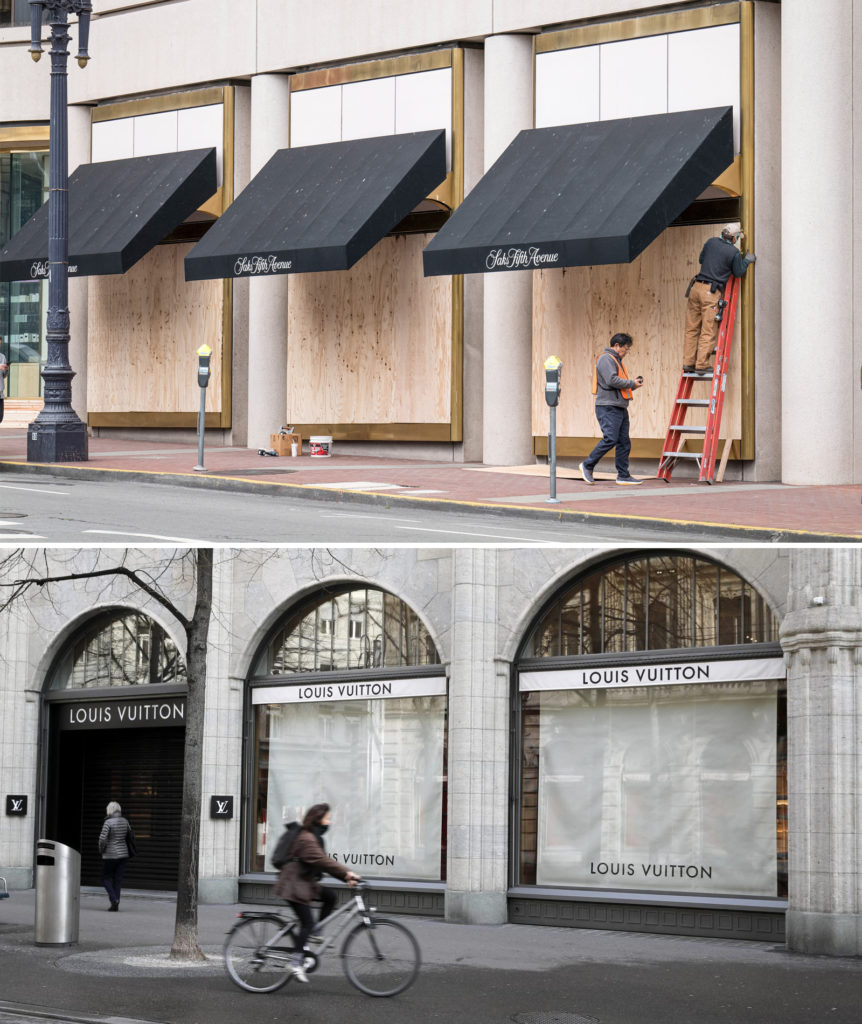
With everything from production factories to retail shops and malls shut down, the business of fashion witnessed unprecedented losses, the impact of which has eventually trickled down to the working class while several high-end fashion brands like Zara have had to take to avoid bankruptcy.
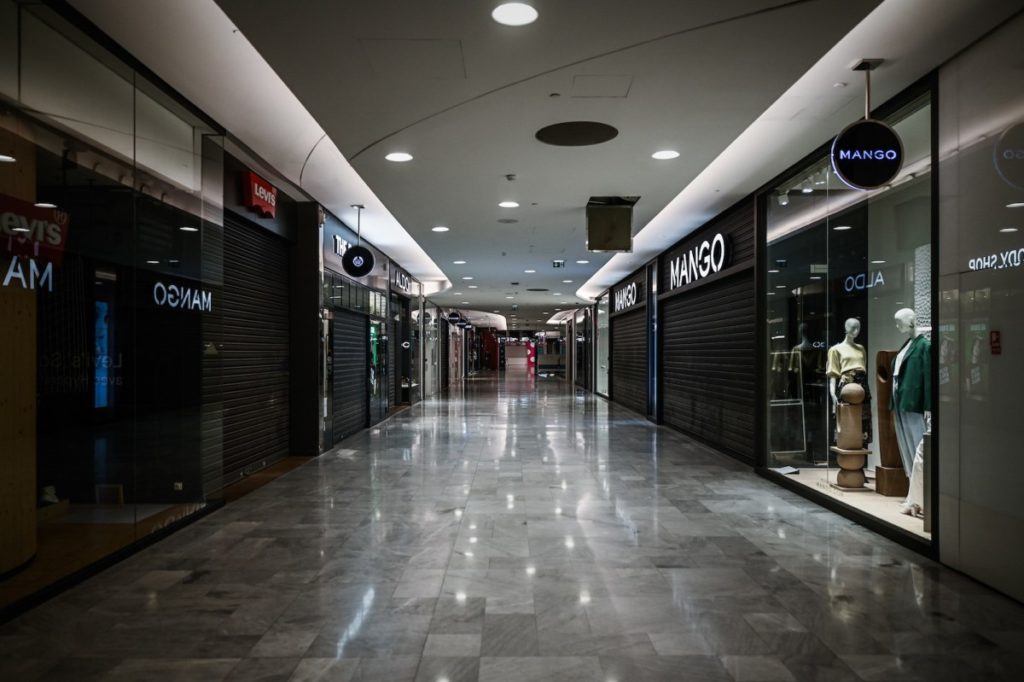
No Runway
While the fast fashion industry faced a more direct effect on its sales and business modules, luxury fashion also encountered its own set of challenges. A category of fashion that is a different institution all together with branding done through an ideology of exclusivity and runways, one of its biggest setbacks was the unanimous cancellation of fashion weeks and other prestigious events.
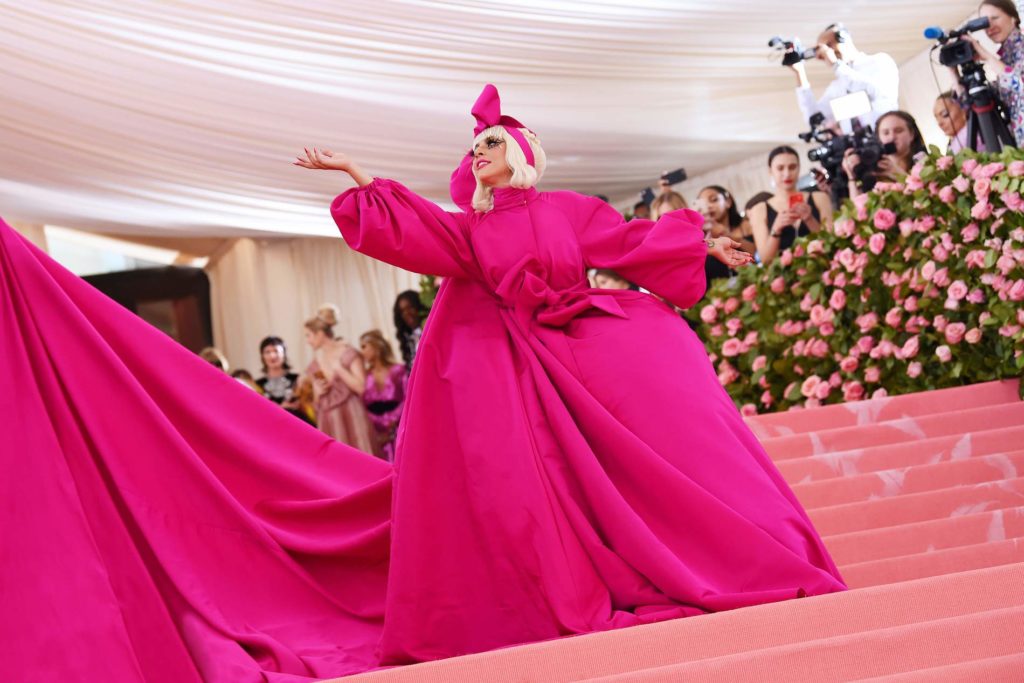
The fashion walk is referred as the most esteemed of fashion events of the year with fashion weeks made on picturesque settings with great precision.
The novel virus disjointed runways from the fashion industry as physical conduct was discouraged for months on end. The Met Gala was postponed indefinitely at first and later cancelled — the first blow to the fashion world as the industry started to feel the heat from the ever growing pandemic.
Through the weeks major fashion houses such as Chanel, Versace and Prada cancelled their Fall21 shows in light of the hazards of public gatherings. Though the Milan Fashion Week was successfully completed in early February, not all shows could be conducted as scheduled.
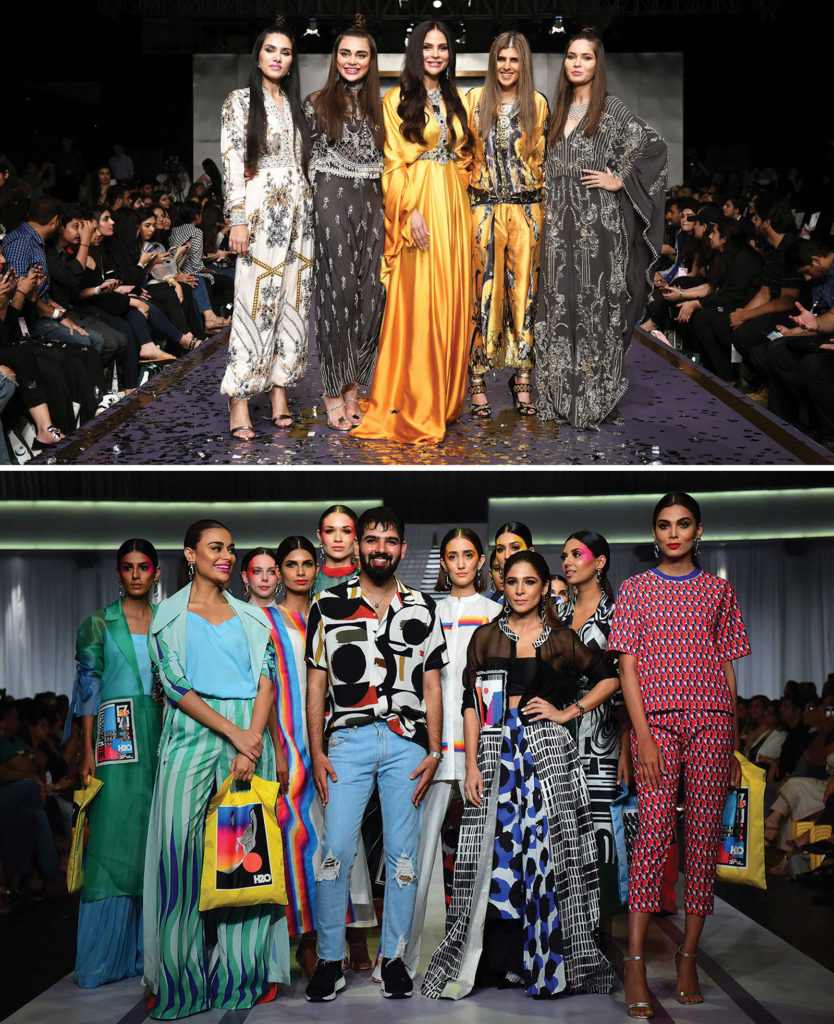
While fashion shows and many events were being cancelled abroad it soon became a topic of contention here in Pakistan as the local fashion industry was preparing itself for two of its biggest fashion weeks namely the Fashion Pakistan Week and Hum Showcase.
The much awaited shows that were to be held in the last week of March and through April were ultimately called off as cases escaladed across the country.
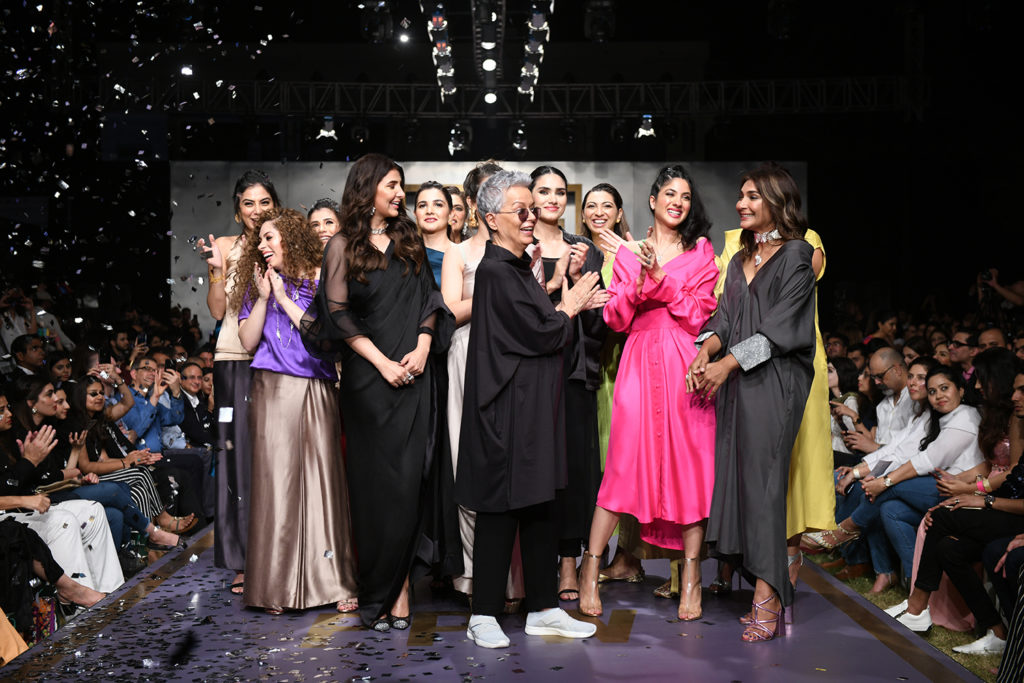
FPC chairperson, Maheen Khan noted, “At this time of a global pandemic, we will assess the situation later during the year, with regards to the rescheduling of Fashion Pakistan Week 2020. We have informed our designers and sponsors, who agree with our decision and together we’ll re-access later in the year.”
Though experts still conclude that second and third waves of Covid 19 are still being forecasted, the world of fashion has progressed amidst the horrors of the pandemic.
The Show Must Go On
In the light of the second half of the year, the fashion industry has risen from the ashes like a phoenix to reclaim its position in the world again.
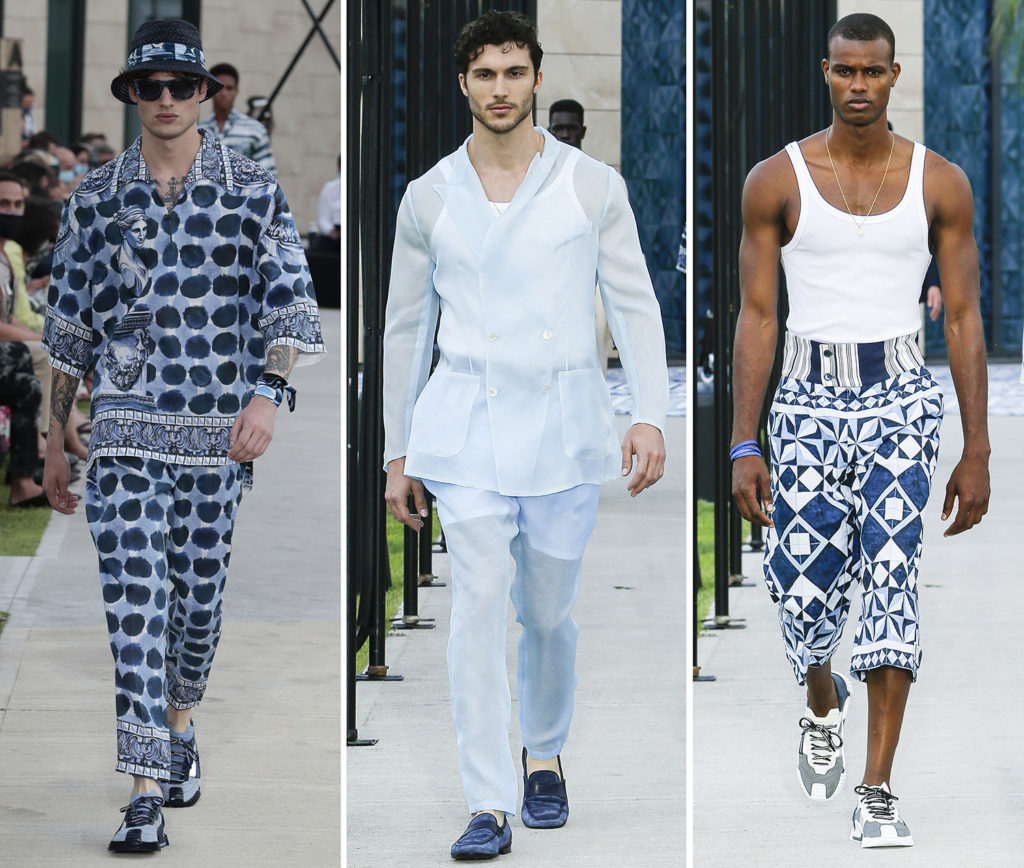
With runways like that of Dolce & Gabbana’s Spring 2021 Menswear show, the world was shown an optimistic hope. Changes were of course made with the change in venue to subsequent narrowing down of guests and the overall decorum that once glorified the brand’s once highly extravagant event.
The show was hosted at the garden campus of Humanitas University where all 260 guests were temperature checked and masks were made a compulsion.
“I don’t like the ‘digital show’ solution,” said Domenico Dolce. “The fashion show cannot be substituted with something on a screen. You need the physical contact, the human connection. Because fashion begins with people.”
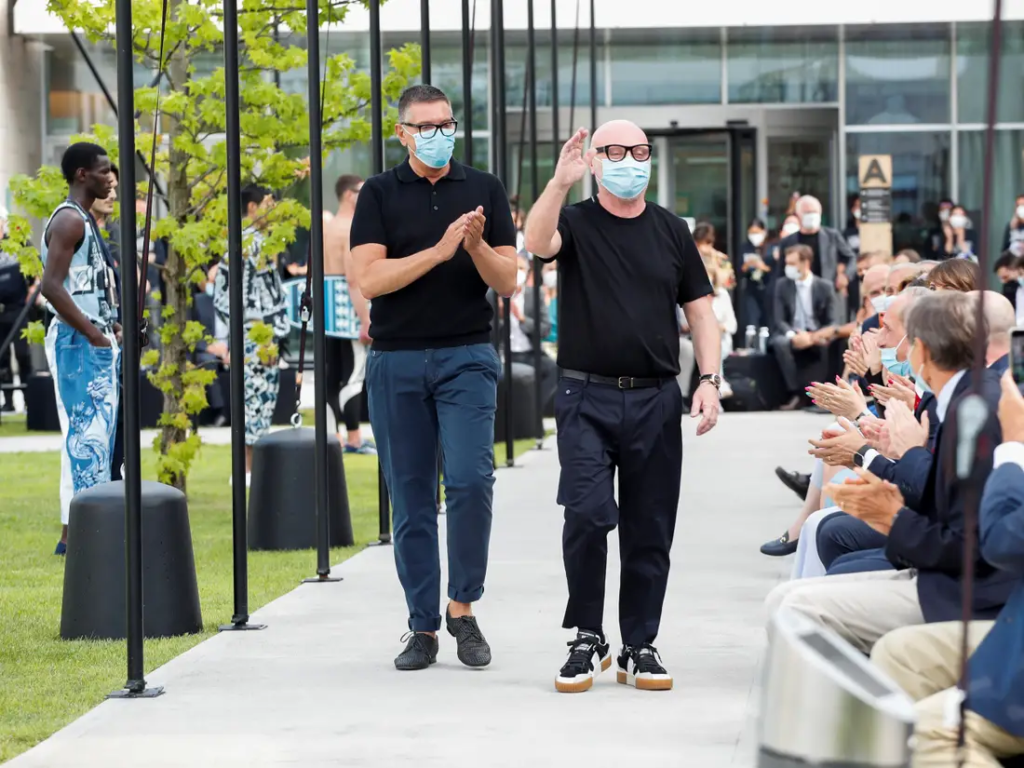
The designs and the concept of the show was kept unchanged though many labels were cutting back on designs due to lack of fabrics, D&G pushed through to show that Italy hadn’t fallen from its glory as a top tired fashion icon.
Simon Porte Jacquemus went further off the grid with his Spring 2021 show, a quaint Val-d’Oise village outside of Paris known for its fertile soil for farming. Editors, friends and family, and a smattering of VIPs sat amongst the breezy stalks, strategically sectioned to keep everyone a safe six feet apart as models weaved through fields of wheat in a collection titled L’Amour, or Love.
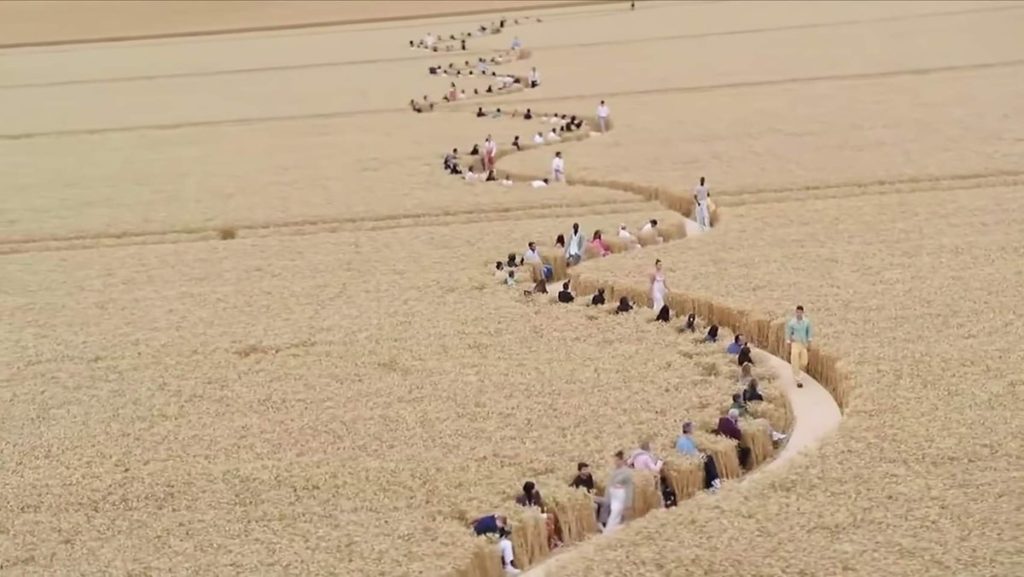
A New Reality
In Pakistan, there has been no inclination of a full-fledged fashion week though designers have begun to cope with the current situation. The fashion industry has been hit hard here with stores closed and the e-commerce business still not highly favoured amongst promising consumers.
The lawn season has suffered greatly which has pushed up the entire calendar for newer launches and upcoming collections.
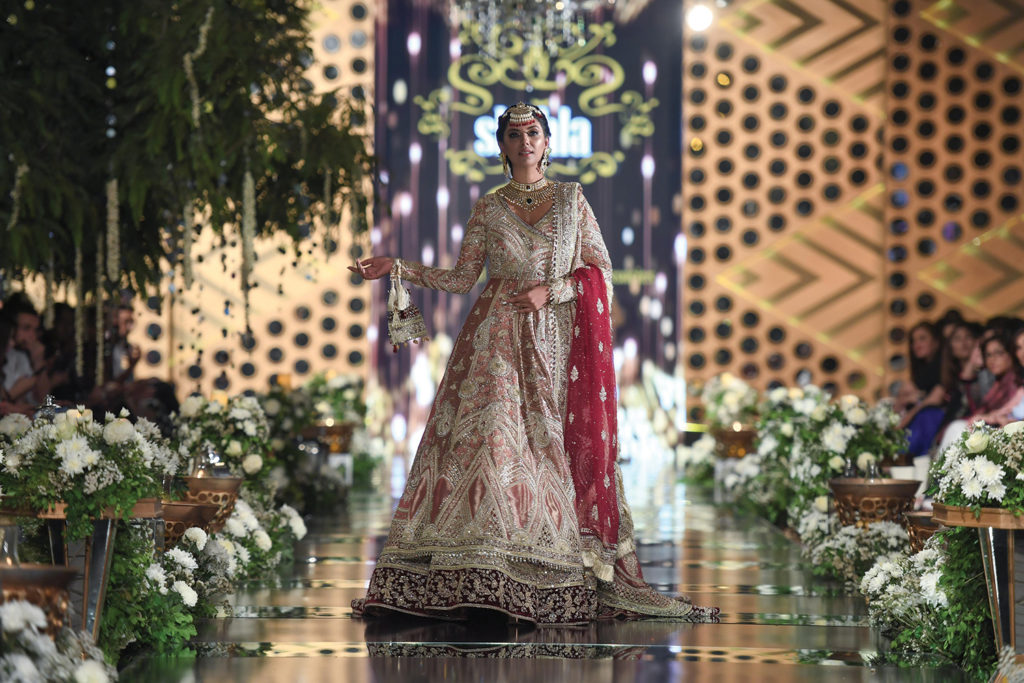
In Pakistan, the annual fashion calendar is highly dependent on the weather. None the less, the resilience of the local industry has clearly shown with the numerous collections being launch regardless of the fashion weeks and the first-ever Virtual Fashion Week that was held a few months ago is also an example of the optimism that our industry thrives on.
In light of the unprecedented pandemic, creativity has challenged new leafs of exploration in visual display and technological advancements. Fashion brands all around the world have struggled with collection launches yet some have prevailed in their own forms on innovation and strategic displays.
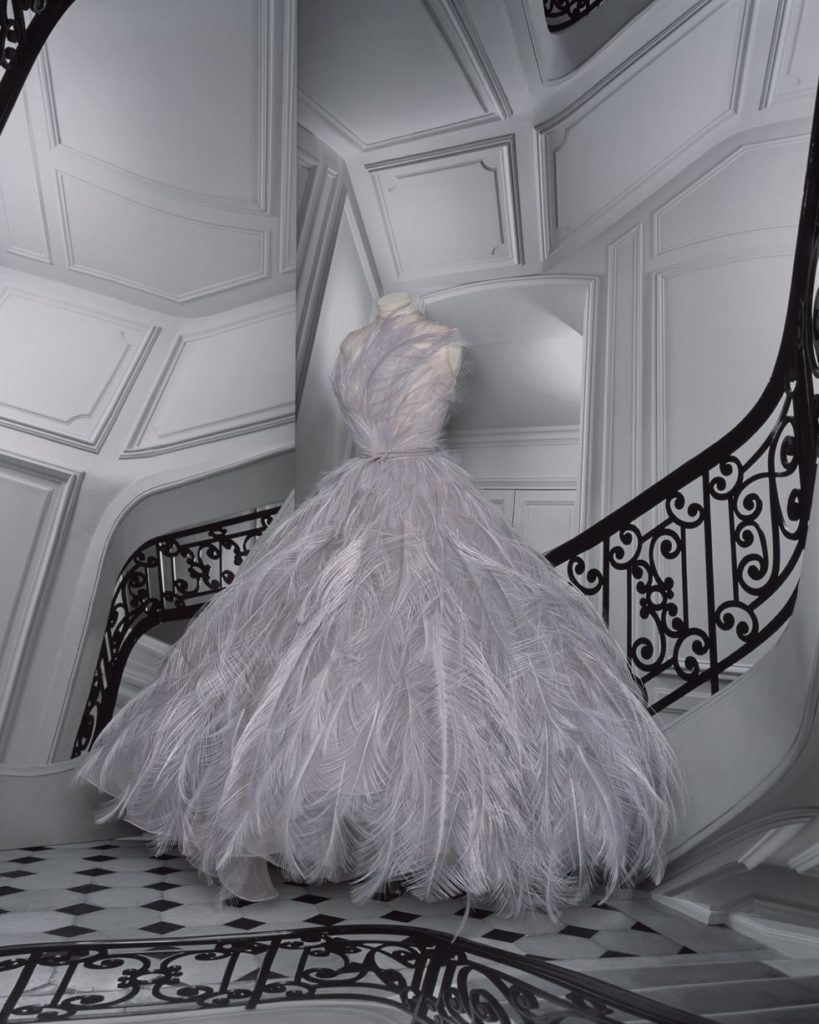
For example, The Autumn-Winter 2021 Dior Haute Couture will be sent to clients around the world on 37 mini dressmaker mannequins. The concept won millions of hearts for its practicality and for its ingenuity in the fashion world in early July.
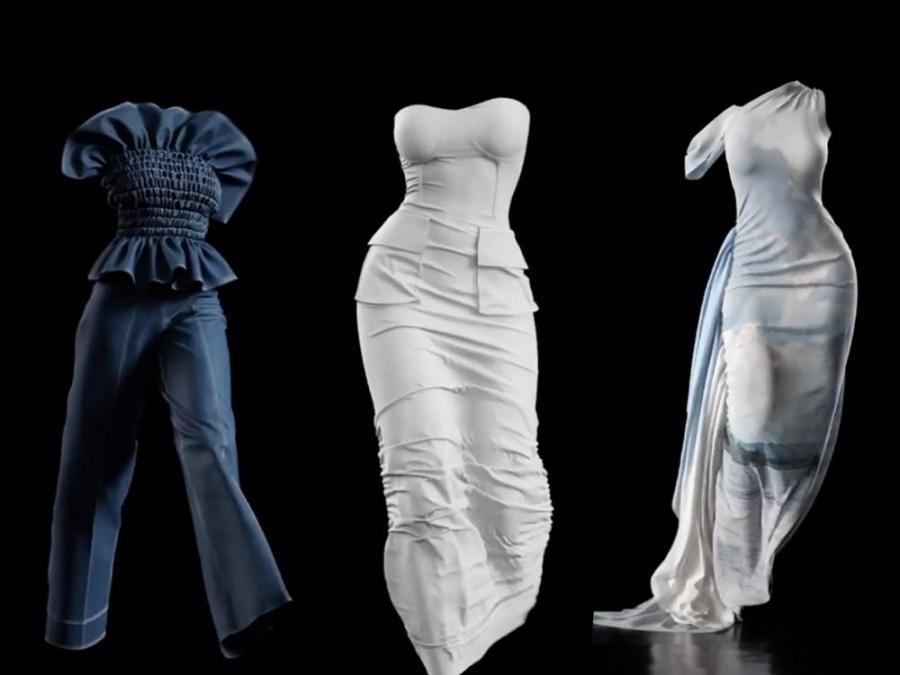
Moreover, South African designer Anifa Mvuemba was the first to create an actual real time digital fashion show equipped with a digital runway. While many designers were focused on digital launches through pictures, Mvuemba was keen of using the scenario to her benefit. The remarkable and realistic fabrications and silhouettes were highly applauded worldwide.
Similarly, Pakistan’s own fashion industry joined hands for the country’s very first virtual fashion week where several high-end brands displayed a few pieces from their collections. Given the closure of salons and limited physical contact, models not only did their own hair and makeup being guided by the team at Nabila’s salon but also filmed themselves walking in the designer pieces which were later donated to the frontline workers.
Hope On The Horizon
The fashion industry has always played a key role in protecting and safe guarding history and culture with its dynamic and creative minds. The world of fashion has gone through wars and has still channeled through, this being no exception.
The fashion community at large has come together in these trying times through numerous live sessions on social media as well as understanding the meaning of being alive. Self-realisation has opened doors to a great understanding of perspective and creativity.
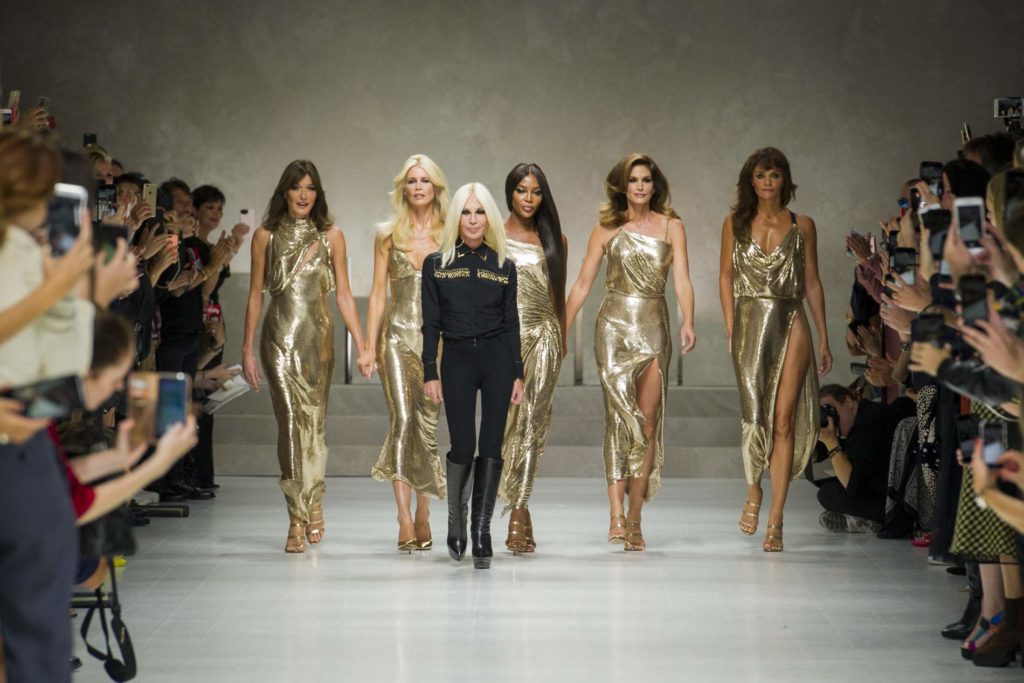
The upcoming fashion weeks at New York, Paris and Milan from September are the true definition of hope and the brink of life we need to keep moving forward as a people, unified to fight away the isolation and desolation that each of us has fought through these past few months.
With the pandemic declining gradually since mid-July, we can only hope to once again take our place in the front row and roll our eyes or applaud at collections as models strut out on the runway.
